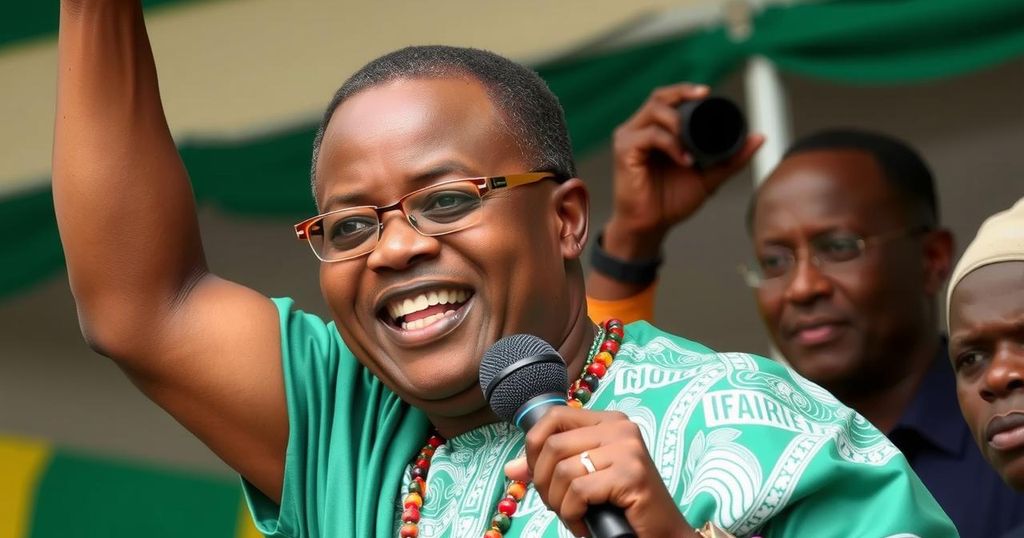John Mahama has made a historic electoral comeback as Ghana’s president after defeating Vice President Bawumia. This marks the first time in the Fourth Republic that a president has reclaimed office after losing. Mahama aims to address economic challenges, implement job creation strategies, and tackle corruption, drawing from his previous experience in leadership roles.
Former President John Mahama of Ghana, leader of the National Democratic Congress (NDC), achieved a significant electoral comeback by securing the presidency on his third attempt, overcoming Vice President Mahamudu Bawumia of the ruling New Patriotic Party (NPP). This historic victory distinguishes Mahama as the first leader in Ghana’s Fourth Republic to reclaim the presidency after a previous defeat. Capitalizing on widespread economic dissatisfaction, he promises to address issues stemming from the country’s recent debt default and a $3 billion agreement with the International Monetary Fund (IMF). Mahama plans to implement a “24-hour” economy aimed at job creation, a pressing concern for younger voters.
With a background as a writer and music enthusiast, Mahama has reflected on the transformative impact of his childhood experiences, including a 1966 military coup. Originally from northern Ghana, he grew up in a privileged environment shaped by his father’s political career. His prior government roles include serving in Parliament and leading the West Africa Caucus at the Pan-African Parliament. Addressing corruption, Mahama intends to create a new office for assessing government procurement above $5 million, citing procurement processes as a source of corruption.
Mahama has shown support for Ghana’s controversial anti-LGBTQ bill, despite international criticism. His campaign representatives expressed optimism, citing public desire for change. However, his earlier tenure faced challenges such as a severe energy crisis and corruption allegations, which negatively impacted his reputation. Nevertheless, his experience in international leadership, notably in responding to the Ebola crisis, bolstered his candidacy and public perception as a credible leader.
The recent election in Ghana marks a pivotal moment in the country’s democratic journey, as John Mahama’s victory highlights his return to power after previous attempts. The context surrounding this election reflects significant economic strife, with Ghana defaulting on its debt and engaging with the IMF for financial assistance. The evolution of Mahama’s career, including his past presidency and previous challenges, provides insight into his political strategies and aspirations for a comprehensive economic reset in Ghana.
In conclusion, John Mahama’s election as president not only reflects a remarkable personal comeback but also a crucial response to the economic challenges facing Ghana. His commitment to job creation, anti-corruption measures, and economic renegotiation positions him as a potential stabilizing force in the nation’s tumultuous political landscape. As he steps into this role, the expectations of the electorate will weigh heavily on his administration’s capacity to deliver meaningful change.
Original Source: www.wfxg.com






